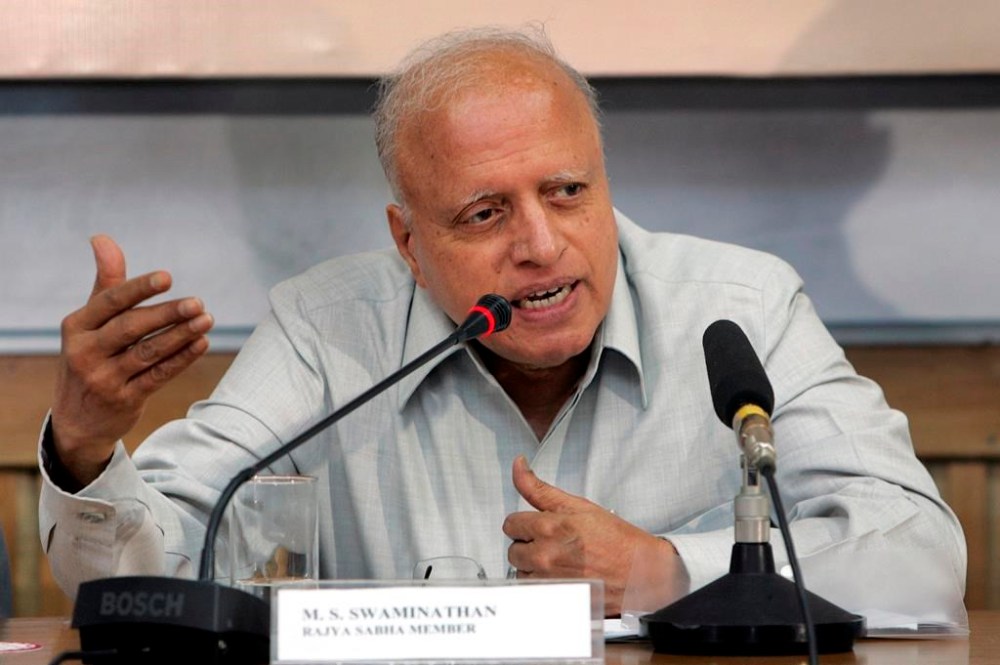M.S. Swaminathan, who helped India’s farming to grow at industrial scale, dies at 98
Advertisement
Read this article for free:
or
Already have an account? Log in here »
To continue reading, please subscribe:
Monthly Digital Subscription
$0 for the first 4 weeks*
- Enjoy unlimited reading on winnipegfreepress.com
- Read the E-Edition, our digital replica newspaper
- Access News Break, our award-winning app
- Play interactive puzzles
*No charge for 4 weeks then price increases to the regular rate of $19.00 plus GST every four weeks. Offer available to new and qualified returning subscribers only. Cancel any time.
Monthly Digital Subscription
$4.75/week*
- Enjoy unlimited reading on winnipegfreepress.com
- Read the E-Edition, our digital replica newspaper
- Access News Break, our award-winning app
- Play interactive puzzles
*Billed as $19 plus GST every four weeks. Cancel any time.
To continue reading, please subscribe:
Add Free Press access to your Brandon Sun subscription for only an additional
$1 for the first 4 weeks*
*Your next subscription payment will increase by $1.00 and you will be charged $16.99 plus GST for four weeks. After four weeks, your payment will increase to $23.99 plus GST every four weeks.
Read unlimited articles for free today:
or
Already have an account? Log in here »
Hey there, time traveller!
This article was published 28/09/2023 (791 days ago), so information in it may no longer be current.
NEW DELHI (AP) — Mankombu Sambasivan Swaminathan, a renowned agricultural scientist who revolutionized India’s farming and was a key architect of the country’s “Green Revolution” died Thursday. He was 98.
Swaminathan died at his home in southern Chennai city after an age-related illness, news agency Press Trust of India reported.
In the late 1960s and 1970s, the agriculturalist was instrumental in bringing industrial farming to India, making the country self-sufficient in food and reducing widespread hunger. India’s “Green Revolution,” as it was known, turned the northern states of Punjab and Haryana into breadbaskets for wheat and rice production, helping low-income farmers.

The initiative, now dubbed as a transformational era in Indian agriculture, introduced high-yielding cereal varieties and expanded use of irrigation and fertilizers. Grain production increased exponentially, at a time when India was beset with widespread starvation.
For his work, Swaminathan was named one of the 20 most influential Asians of the 20th century by Time magazine.
Swaminathan also held administrative positions in various agricultural research institutes in India and served as a top planner at the Indian Council of Agricultural Research between 1972 and 1979. He received the Padma Shri, one of the Indian government’s top honors, in 1967.
Swaminathan also served as a lawmaker in India’s upper house of the Parliament.

